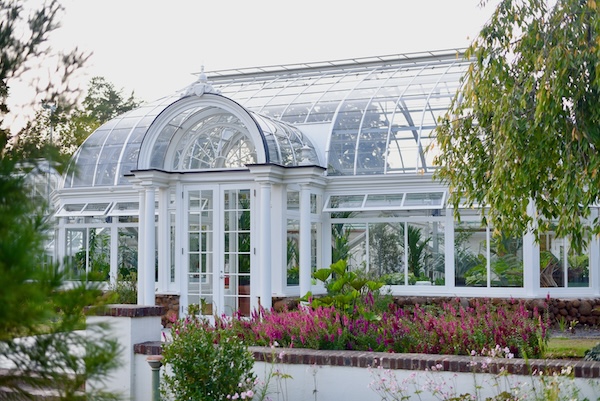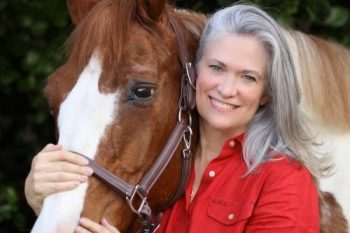
THE GREENHOUSE AT REYNOLDA HOUSE and Gardens has been restored to its former glory, redesigned as a gleaming gateway to the entire estate — and renamed the Brown Family Conservatory.
The yearlong restoration and rehabilitation, finished in October 2024, included turning a florist’s workroom into a welcome center to help visitors navigate the formal gardens, 34,000-square-foot Reynolda House Museum of American Art, Reynolda Village’s stores and restaurants, and grounds encompassing 170 acres.
“The Brown Family Conservatory, in its beautiful, glistening state, is a beacon to come and discover Reynolda,” says Allison Perkins, Reynolda House executive director and Wake Forest associate provost for Reynolda House & Reynolda Gardens.
Funding came from Dr. Malcolm and Patricia Brown, a longtime Winston-Salem physician and champion of the arts, respectively; the Garden Club Council of Winston-Salem/Forsyth County; the estate of Everdina B. Nieuwenhuis; a 2023 Reynolda Gardens fundraiser; the state of North Carolina; and the University.
Using the conservatory for community outreach harkens back to its early days. Family matriarch Katharine Reynolds commissioned the prestigious Lord & Burnham company to design and build the original greenhouse in 1913, four years before Reynolda House was finished, not only to propagate vegetables but also as a gift to the community, hosting popular seasonal displays and a free annual chrysanthemum show.
“It was no accident that Katharine Reynolds had the greenhouse completed first,” Perkins says. “She sought to provide beauty, respite and education for this community — the restored conservancy and welcome center are the gifts that keep on giving.”
Reynolds’ daughter, Mary Reynolds Babcock, and her husband, Charles Babcock, donated land in the late 1940s from the Reynolda estate to relocate what was then Wake Forest College to Winston-Salem. After Mrs. Babcock’s death in 1953, her husband gave the conservatory and formal gardens to the University as well, and they have long been free and open to the public.
As the conservatory aged, it went through a number of changes, including the removal of the curved glass on each wing. In the fall of 2023, it closed for a complete restoration process of the glass and modern control systems. It reopened in October 2024 with themed areas including an orangery, displays of several Mediterranean regions and a tropical room.
“It’s one of the few places where you can escape to an entirely different region of the world without ever leaving the city limits,” says Jon Roethling, director of Reynolda Gardens.
In May, the Winston-Salem/Forsyth County Community Appearance Commission honored the conservatory with its 2025 Classic Award, which “recognizes landmark buildings, developments and landscapes of enduring value and quality that have become symbols of our community.”
The conservatory is the last of Reynolda’s three iconic buildings to undergo renovation in recent years: Reynolda House’s 77-ton clay-tile roof was replaced in 2021, and the village’s dairy barn was renovated and re-opened in 2016 as a popular event venue.
“By stitching historic Reynolda back together, I want it to be seen as this unique place with a constellation of resources,” Perkins says. “We saw the volume of people during COVID increase dramatically, and they’ve never gone away. They found a place that lets them lower their shoulders and decrease their stress load, and we are just about making this a better place for everyone who comes here.”
There’s more to come: As part of the University’s bicentennial space planning, Reynolda started developing a future-use plan in February with Graylyn Estate and Conference Center, the neighboring Wake Forest property just across Reynolda Road. The focus is the estates’ connectivity to the Reynolda campus and their relationship with the broader community, Perkins says. That work is expected to wrap up next spring.


